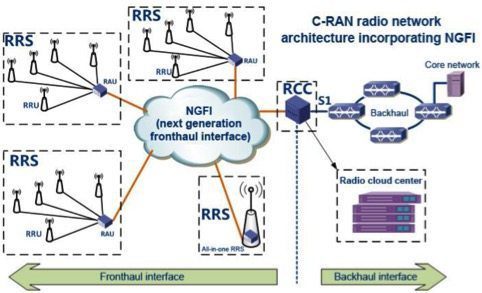Is there an IoT business case for operators? A new report found that IoT business is outpacing traditional business.
If we can all agree that the Internet of Things (IoT) is a growing market, the jury is still out on which player is best positioned to actually make money from it: enterprises, device makers, cloud services providers, internet and software companies, systems integrators, technology consultant, telecommunications vendors or operators? Operators’ IoT business ambitions have been under scrutiny for years, in particular how far up the value chain operators should climb. Earlier in June, New Street Research partner Andrew Entwistle said there simply was no such thing as an IoT business case for operators. To begin with, operators should expect low traffic and low margins from IoT and vertical market solutions, he said. Then, operators have no good track record when it comes to climbing up the value chain to offer IoT and vertical market solutions, he added.
A new study by Machina Research has found however that IoT business is good business for operators. IoT business is in fact even outpacing traditional areas, according to the analyst firm. “It is easy to think of the Communications Service Provider (CSP) as stuck in the old practice of selling minutes of use and data packages. The reality however is that they are working very hard to transform themselves from this. They are investing billions into technology and capabilities that enable them to take sales conversations beyond connectivity into discussions that focus on solutions that solve customer business problems. Global leaders like Vodafone, AT&T and other top tier global players are doing this and as a consequence starting to capture a greater portion of the IoT opportunity. They are certainly early in this journey, however the potential is huge and can mean as much as ten-times greater revenue capture in IoT than what connectivity alone would deliver,” said Godfrey Chua.
The analyst firm identified Vodafone as a global leader in terms of taking advantage of the global IoT market opportunity, closely followed by AT&T.
IIoT News Recap: Cisco and Salesforce form global IoT alliance; Grab and Nutonomy partner on self-driving trial in Singapore; GPSengine partners with Alematics on fleet tracking; Wanxiang wants to use blockchain-based security in new giant smart city project
Enterprise: Cisco and Salesforce form global IoT alliance
Cisco and Salesforce have formed a global alliance whereby the two companies will jointly develop and market solutions combining Cisco’s collaboration, IoT and contact center platforms with Salesforce Sales Cloud, IoT Cloud and Service Cloud. Specifically on Iot, Cisco Jasper and Salesforce IoT Cloud will integrate to enable enterprises to “quickly and cost-effectively leverage billions of IoT data points to provide personalized, engaging experiences for customers, partners and employees”. The new joint solutions are expected to be available in the second half of 2017.
Autonomous driving: Grab and Nutonomy partner on self-driving trial in Singapore
Nutonomy beat Uber to become the first ride-hailing company to offer a self-driving car service a few weeks ago. In order to expand its public trial in Singapore, Nutonomy has now partnered with leading Southeast Asian ride hailing company Grab. Both companies are hoping the partnership will help them study the end-to-end user experience of on-demand hailing of autonomous driving (AD) vehicles. Starting today, select Grab customers will be able to hail a ride in one of the trial’s AD vehicles, free of charge. “Partnering with Grab to expand our public trial in Singapore will yield valuable feedback and consumer insights as nuTonomy readies our on-demand self-driving car service for commercial launch in 2018,” said Karl Iagnemma, CEO and Co-Founder of nuTonomy. In the meantime, Uber’s AD vehicles have started to roam the streets of Pittsburgh and are now said to have hit the streets of San Francisco.
Tracking: GPSengine partners with Alematics on fleet tracking
Australian IoT platform provider GPSengine has teamed up with Taiwan-based tracker provider Alematics to provide enterprise customers a ready-to-go fleet tracking solution. “Projects in the fleet tracking space take time to develop and implement and this incurs costs for organisations even before they can see basic tracking. With this combined offering, organisations can install Alematic trackers and start tracking straight away utilising Platform Connect, reducing the cost and time to implement traditional solutions,” said GPSengine.
Smart cities: Wanxiang wants to use blockchain-based security in new giant smart city project
Chinese automotive group Wanxiang, owner of U.S. electric carmaker Karma, is reported to be planning a giant smart city project in Hangzhou, China. According to Coindesk, reporting from the Wanxiang-sponsored Global Blockchain Summit, Wanxiang has plans to invest ¥200 billion ($30 billion) over the coming seven years to develop a smart city on 83 million square feet of land in Hangzhou. Details about how exactly blockchain technology will be used are scarce but could include car security or car battery tracking.


